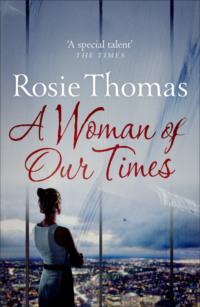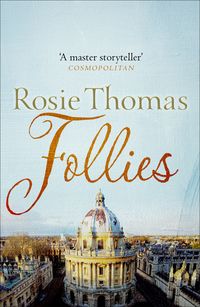
Полная версия
The Potter’s House
‘I am afraid that I am mad. Known fact. Crazy. Completely barking.’
He chewed his food, reflecting briefly on this idiotic announcement.
‘I think I will be the judge of that,’ Peter Stafford answered.
I ate as much as I could of my steak and vegetables, without making much of a dent in the portion, and all the time I could think of nothing but how soon we might be able to go to bed together. When he was finally convinced that I wasn’t going to eat tarte Tatin or chocolate soufflé, Peter shepherded me back to the Jaguar and drove me to his flat in Bayswater.
We kissed for the first time under the overhead light in the hallway. In his sitting room, standing beside the floor-to-ceiling bookshelves, I reached around to the zip on the back of my dress and undid it. Slowly, I let the folds drop to the carpet. I was naked underneath except for my pants. He covered my breasts with his hands.
I kicked off one high-heeled shoe and then the other. Barefoot, I was closer to his height. He took my hand and led me into his bedroom, and closed the door behind us.
When he took off the last garment he knelt over me and looked.
‘Oh God, oh God,’ he breathed. After a beat of fear I realised that it was in pleasure and admiration, not dismay. I put my arms round his neck and pulled him down on top of me.
When we made love, Peter Stafford made me feel three-dimensional.
I forgot the jut of my hips and my overlong and protuberant spinal column, and the dull grate of bone. In his arms I became languorous and creamy and fat.
Afterwards he held me against him, warming me with his solid flesh.
‘Cary, Cary. Be still,’ he ordered and I knew that he didn’t mean just now, under the crisp covers of his bed, but in my life. No more spinning around and gobbling pills. No more talking nonsense or drinking or dementia.
‘I asked Cecil to bring me over to you,’ he said. Cecil was the photographer’s agent. ‘I didn’t think you would even speak to me, but I made him do it just the same.’
‘I would have come to you, if you hadn’t.’ Maybe I would have done, too.
That was a Thursday evening. I had a job the next day, but I called in sick. It was the first time I had ever done such a thing and my booker was astonished. Peter called his office too. We stayed in bed for the whole of Friday and for the weekend that followed it, except for when we got up to forage for something to eat and drink. I padded around wearing one of his shirts because I had nothing with me but my party dress and we fed each other cold chicken legs or buttered toast.
‘Good,’ he approved.
Another time when we were quietly lying together and watching raindrops on the window glass he asked, ‘Why did you say you were mad? Except for the job you do and the people you do it with you seem exceptionally sane to me.’
I fended him off. ‘No real reason. Drink, nerves, babble. Or I suppose that if someone were to look at you and then at me, they might put you in the sane category and me in the other. Just as a matter of relativity.’
‘Because of the way we look, relatively?’
Without his glasses Peter’s eyes were soft, with creases at the corners. His forehead and the faint lines hooking together his mouth and nose and the curve of his lips were already dear to me. I touched them, stroking the skin with the flat of my thumbs.
‘No. Nothing to do with that. It’s history.’
‘What history?’
‘Tell me yours first.’
He held me so that my chin rested in the hollow of his shoulder. I closed my eyes and listened while he described his childhood. He was the middle one of three boys, children of a City solicitor and a career mother. They lived in a good house in Hampshire and the brothers played cricket in the garden and sailed dinghies, and went to a suitable public school and then on to appropriate universities.
‘Not very interesting, you see,’ Peter said.
‘It is to me. Where are your brothers now?’
He told me that they were both lawyers and both married, and made a joke about it being such a conservative family that his own minute deviations from this norm were regarded as acts of rebellion.
‘No wife, you mean?’
‘No law, no wife. But I have had a couple of girlfriends. I’m quite normal, you know.’
I did know already, but I wanted to know more about his background because he was so safe and rational, the living equivalent of the scent of clean laundry. Everything about Peter Stafford, past and present, was a magnet to me.
Probably after that we started to make love again and so his original question to me was forgotten. I avoided talking about my own history that time, although eventually, of course, I did confess it to him.
In any case, within three months Peter and I were married.
He asked me once or twice if I had seen our new neighbour again, and I told him no. Then I met Lisa parking her car as I was coming back from a walk in Hyde Park. We talked for a minute or two, and on impulse I asked her if she would like to come and have dinner with us the following week. To my surprise she accepted. She was lonelier than I had calculated and Baz had not yet been replaced.
Lisa rang the doorbell late, well after all the other guests had arrived. Peter answered the door and I heard him introducing himself and then Lisa’s laughing response before he shepherd her into the drawing room. She was wearing a short, slippery red dress with a little pink cardigan shrugged over it, and red suede shoes. Our guests collectively sat upright, our old friends Clive and Sally Marr and Mark and Gerard from upstairs, and the visiting American woman associate of Peter’s, and the young portrait painter and his girlfriend whom I had invited in an attempt to span the age gap between Lisa and the rest of us. Her arrival was like a shaft of daylight coming into the nighttime gathering.
I saw her looking around at the room that was identical in shape and size, and yet so different from hers.
‘Your flat is very smart,’ she said, after we had greeted each other.
‘Is it?’
‘Definitely.’
I introduced her to the others and as she moved around I saw that what she brought with her wasn’t exactly light, but warmth. Aside from her youth and her prettiness, she had genuine heat that thawed the formality of the occasion. Clive Marr unwound his long arms and legs from their self-protective embrace and shook her hand, and Jessy the American woman smilingly made room for her on the sofa. I hitched my black woollen sleeves round my wrists. I was glad that Lisa Kirk was entirely natural and at ease, and that she didn’t need her hostess’s protection. My hands were cold, so I went closer to the fire and warmed them.
The evening took off. Clive told a funny story I had never heard before about his days as a houseman under an autocratic consultant who thought his inveterate stutter was an affectation. ‘D-d-d-iverticulitis, Dr Marr?’ he mimicked, embedding his own impediment within the fearsome doctor’s voice with surgical precision.
Everyone laughed including Lisa, and Clive looked boyish with pleasure.
Dan Cruickshank the portrait painter gossiped indiscreetly about the royal princess who was currently sitting for him, and Mark and Gerard leaned forward greedily to catch the details. From across the room Peter smiled at me, his eyes creasing behind his glasses. I smiled back, buckling my mouth into a curve against a sense of alarm that I didn’t yet recognise.
We went into the next room to eat. The candles reflected tapering ovals of light off glass and polished wood. Lisa studied Peter’s pictures, a pair of splashy Hodgkins and a small Bacon. She had taken off her little pink cardigan and her shoulders were bare except for thin straps. Her skin was pale and the candlelight seemed to strike off it, breaking and intensifying into painterly slashes of green and peach and yellow so that I narrowed my eyes to make it recombine, wondering if I had already had too much to drink.
‘Lisa, would you like to sit here?’
Peter drew out the chair next to his. I took the other end of the table, between Gerard and Dan. The talk and laughter swelled and I sliced and spooned food on to plates and watched it disappear. After long years of conditioning myself, I didn’t any longer care much about eating. But I had plenty of time at my disposal to prepare meals like this one and cooking was still one of my pleasures.
At my end of the table Dan and Sally and Jessy were talking about portraiture. Peter had wanted Dan to paint me and we had met originally to talk about the project. I had hedged and demurred, because I didn’t want to sit and be scrutinised so closely, and in the end the idea had come to nothing. But we had remained friends with Dan and therefore also the current one of his series of girlfriends.
‘I would still like her to sit for me, but I don’t think I can persuade her,’ Dan was saying.
‘You should keep trying,’ Gerard advised.
Lisa had been deep in conversation with Peter. Her attentiveness to him made her seem taut as a stretched bow with the arrow in the notch and ready to fly. But now she turned her head. Our eyes met and locked.
‘It would be a wonderful picture. When I first saw Cary I was almost too afraid to speak to her.’
‘Why is that?’ I asked, in spite of myself.
‘Because of the way you look.’
There seemed to be a shift in air pressure, as in the seconds before the sound of an approaching tube train becomes audible. The way you look. When I was much younger I possessed an outlandish kind of beauty. I was six feet tall, with a smooth face that make-up artists could paint over with a hundred other faces. I used my appearance to earn money as a photographic model. But I was past forty now and what was left of my extreme looks had been for a long time more an affliction than a blessing because they were at odds with what I felt inside. It was like having always to wear a mask, only it was also a mask that age kept on distorting.
‘I remember that you talked quite a lot, in fact,’ I said, recalling the confidences about Baz and his new girlfriend and the pregnancy.
There was that change in air pressure again, a movement of the atmosphere that made you suck in a breath to reinflate your lungs. In the sudden silence that was broken only by the clink of cutlery I realised that the new atmospheric component was hostility. It had replaced the oxygen.
Lisa and I were still looking at each other, the glance twisting between us like razor wire. Peter sat in his place at the head of our table, his eyes still mild behind his glasses, maybe unaware of the arrow pointed at him. But I think he did feel the tension of the bowstring. This was about him. Lisa Kirk believed that she had spotted Baz’s replacement.
‘Oh yes, once I knew you,’ Lisa said softly.
My body went stiff. That this child should think she knew me on the basis of a couple of encounters, when I had devoted so much and so many years of effort to concealing everything. Everyone in the room, it seemed, immediately began talking very loudly about the first thing that came into their heads.
Mark adjusted the already perfect folds of his turned-back shirt cuffs. He had smooth wrists, lightly tanned from the latest trip to Kerala. And then he reached out to touch Lisa’s handbag that was lying next to her plate.
‘I read somewhere that women’s bags actually represent an intimate portion of their anatomy. Do you think there’s any truth in that, Lisa?’
Dear Mark, kind and vicious in the same breath. Tonight’s little bag was in the shape of a pink satin heart, sequinned and beaded, and certainly quite anatomical if you chose to look at it that way.
‘If it is true, I’m in the right business, aren’t I?’ She smiled. ‘Even if it is only a representation. Dealing in a commodity that is so constant and yet so sought after.’
Lisa was utterly self-possessed. I had the sudden certainty that nothing would deflect her and nothing would disconcert her. She wore her youth and sureness and desirability like armour plating.
Peter’s American associate was giggling at this risqué turn in the conversation, and Lisa lifted up the bag and gave it to her to examine.
‘What do you think, Jessy?’
‘It’s certainly pretty enough.’
‘Thank you.’
I slid out of my chair and began to collect up the plates from my end of the table, moving very deliberately and with a smile nailed to my face.
The evening came to an end eventually. Lisa rested her fingers gently and briefly on my forearm as she kissed me goodnight and then gave exactly the same attention to Peter.
When Peter and I were left on our own we stacked the plates in the kitchen, blew out the candles, retreated to our bedroom as we had done so many times before. I lay very still in our bed and he put his arms round me, which made me conscious of how brittle I felt.
I wasn’t ageing well, I thought. Now that I no longer had it, I wanted my weird beauty back again. I wasn’t a model, I had failed to become an actress – which had been my subsequent intention. Another strange choice for a woman who doesn’t like to be looked at. Much uneventful time had elapsed and I didn’t know what I was any longer. Except that I was Peter Stafford’s wife and a resident of Dunollie Mansions, for now.
‘Catherine, what’s wrong?’
He doesn’t often call me by my full name.
‘Nothing. Did you enjoy the evening?’
He shifted a little on his hip, considering, and I felt the warmth of his breath on my face.
‘Yes. I think it went quite well. Clive was in good form.’
Tenderness towards him spread beneath my breast-bone like heartburn. Peter always considered his judgements, and tried to be fair and objective. How had we lived together for so long and been so different, in our chalk and cheese way?
Lying in the dark I found myself thinking of the night we met and fell in love, standing under the ribs of a spiral staircase while a procession of models went up and down past our heads. Lisa Kirk told me about watching her Baz falling in love at a party in just the same way and I was sure I had witnessed the same flash of lightning tonight, between Lisa and my husband, even though I didn’t think they had exchanged a word in private or even an unwitnessed glance. The three scenes made a bright little triptych in my mind’s eye.
I moved an inch closer to Peter and kissed his closed mouth. At the same time I lifted and crooked my upper knee. One of those signals that long-time couples read so well. He put his hand over my ribcage and splayed the fingers over the bones, as if he was fingering piano keys.
‘I love you,’ I told him, which was the truth.
‘And I you,’ he answered politely. ‘And I worry about you.’
I didn’t press him to explain the dimensions of his anxiety. ‘What did you think of Lisa Kirk?’
‘I liked her.’
‘I thought you would.’
I exhaled and his fingers moved again.
We made love, a little awkwardly, as if there were a sheet between us.
After that, it was only a matter of time.
Two
Every day of each season on the island of Halemni had its own perfection, but to Olivia Georgiadis autumn was the best time of all.
The heat of summer was contained in the brazen midday, while the chill mornings and evenings gave a taste of the coming winter. There was a smell of woodsmoke and burning pitch as the fishermen overhauled the boats, and the houses and tavernas around the harbour wall lost their wide-eyed summer expressions as shutters were nailed in place. The last of the holidaymakers were carried away on ferries and hydrofoils towards Rhodes, or distant Athens, and their flights to Munich or Stockholm or Gatwick. There was a collective sense of relief at the season’s end as the little community prepared to turn inwards.
Olivia was thinking about autumn and other things, as she made her way down the hill to her house. Her two boys were running ahead of her, their brown legs twinkling in the sunshine as they leapt the rocks. Olivia walked more slowly, with empty baskets in both hands. She had been to take cake and flasks of coffee to her guests who were at their easels in the shelter of a band of stunted trees near the top of the hill.
‘There’s Pappy!’
Georgi, the older child, balanced on a cone of rock and pointed. His brother Theo immediately ran up and pushed him sideways. Georgi toppled off and Theo leapt on to the rock pinnacle in his place.
‘I am the leader,’ he crowed.
‘Mummy, Mum, did you see what Theo did?’
The two of them spoke a mixture of Greek and English that Olivia and Xan always enjoyed. Xan’s Greek mother was less admiring.
‘They sound nothing like little Greek boys. They sound like nothing on earth,’ Meroula Georgiadis complained.
‘Take it in turns,’ Olivia told them automatically.
She dismissed the thought of her mother-in-law and watched her husband walking back along the harbour wall instead. He was looking over the turquoise water, past the moored caiques and the smoking tar barrel, but she could see the way the wind blew his hair into a crest, just as it did with Georgi’s. Her heart’s rhythm altered for a second or two as it always did when she caught sight of Xan after a separation, even if it had only lasted for an hour.
‘Come on, Theo,’ Georgi yelled, opting to ignore the rock dispute. He ran away downhill and his brother scrambled after him. Theo was only five, the younger by two and a half years, but he was impulsive and imaginative where Georgi was calm and cautious. Olivia began to run after them, with the empty raffia bags flapping against her legs. The low mounds of wild sage and spiny burnet alternated with outcrops of bare limestone and she skipped from one safe footing to the next, unconsciously copying her sons.
The old houses in Megalo Chorio, the principal settlement on the island, were whitewashed cubes with door and window frames painted bright blue or green. They lined the harbour wall and the sides of the one street that led away from the sea. On the village outskirts, a few metres back from the sickle curve of the beach, was a row of new concrete boxes, half of them unfinished with thickets of rusty metal sprouting from the flat roofs. These were the apartments and studios rented by the tourists in summer, those who didn’t stay with the Georgiadises or in private houses or one of the two tavernas with rooms in the main street. The new buildings were an eyesore but Olivia had taught herself not to look at them. The tourists brought money to Halemni, they needed somewhere to sleep, so it was necessary to have such places.
The Georgiadis house stood at the back of the village, forming the short side of a rough cobbled square dominated by a huge fig tree. Across the square Taverna Irini faced a tiny church with a rounded blue dome. The fourth side was open and gave a wide view of the bay and water skittishly silvered by the sunlight. The house had originally belonged to the island’s potter, but the local craftsman had lost the competition against cheap imported plates and dishes, and had retired to the west side of the island. Xan and Olivia had bought the house and its outbuildings ten years before, when they decided to make their lives here where Xan had been born. Before that Olivia had travelled so far and for so long that she believed to settle in one place, with Xan, would be as close to heaven as she could ever come.
And in many ways the belief had been justified. She would have argued with anyone that every idyll must have a flaw, in order for it to be recognisably an idyll. Xan came along the street just as Olivia and the boys reached the front door. He was a big man, black-haired and black-eyed. He put his hands against the oak of the door lintel and made an arch of his body. The boys ran underneath, shouting with noisy competition.
The house was washed pale-blue, like a reflection of the early morning sky. It had two storeys with shuttered windows and small iron balconies at the upper ones. The rooms were small and not very convenient, but the outbuildings were ideal. Xan had converted them into a row of modest studios, and it was these that housed Olivia’s summer guests. They were English, like Olivia herself, mostly middle-aged or retired, and they came to Halemni to paint.
Olivia and Xan made a living out of the painting holidays, just, which put them in about the same financial position as everyone else on Halemni. And they had the winters to themselves, when the wind worried at the shutters and salt spray caked the harbour stones.
Olivia stooped and tried to pass the same way as the boys, but Xan caught her by the hips.
‘Hello, yia sou.’
They kissed briefly, smiling into each other’s mouths.
‘Everybody happy?’ Xan meant the guests up on the hill, peering across their easels at the view of the village and the coast of Turkey like smoke on the skyline. This fortnight’s guests had been a more than usually demanding group. They complained about the cold at night and about the mid-afternoon heat.
‘For five minutes, at least. Chris is up there.’
Tuition was provided by Christopher Cruickshank, a good teacher and a talented watercolourist in his own right. Olivia cooked and hosted evening parties, and led walks if anyone wanted to explore the island.
Xan’s contribution was largely his geniality. It was one of the reasons why the English couples came back year after year and recommended the Georgiadises to their friends. Xan took them on boat trips and grilled fish on a driftwood fire, and teased them about English weather and their native reticence, or anything else except their ability as painters. In the remainder of the time he fixed damaged ballcocks and repaired the generator, and did whatever other running repairs were needed.
Xan grinned. Nothing more needed to be said. It was the last day of the last booking and tomorrow the hydrofoil would take them all away.
‘Pappy, look. It’s a war,’ Georgi called.
Xan put his arm round his wife’s shoulders and they squeezed through the doorway together. The boys had perched at the big scrubbed table in the kitchen, knees and feet bundled up anyhow on the chairs, and were drawing on big sheets of coarse paper. Georgi’s picture was of aeroplanes looping and smashing in mid-air. Tiny men spilled out of them with triangular parachutes sprouting from their backs. Xan put his head on one side to study it. He thought how sturdy and alert and busy his sons were. This was all Olivia’s doing.
When he first met her she always had her eyes and her attention fixed on the next place. But then, to his amazement, when they fell in love she quickly agreed to come home with him to Halemni. She had fitted in here as easily as if she had been born in a house overlooking the bay. They married and the boys were born, and it was as if she had turned herself inside out, like a leather glove reversing to its silk lining, the wanderer turned into the anchor. Olivia became the best mother he could have imagined and the little household revolved around her steady sun.
‘Why did you give up your glamorous life to come and be poor with me on this rocky island?’ he used to ask her, when it still seemed remarkable to him. ‘Even if you had done enough travelling you could have gone back to England, to your family and your friends.’
It was true, Olivia acknowledged. Her parents were there, and all her friends from school and university, and a couple of sort-of boyfriends she hadn’t missed much while she was away. It was the ordinary network of a normal life and she had broken out of it in the first place because she didn’t want to be defined by it. Most particularly, she didn’t want to live like her mother and father had lived.
‘I came here with you because I loved you more than anything or anyone else in the world. I still do. And I stay here because I am so happy,’ she told him.
It was the truth. When she put her arms round Xan she felt how solid he was and rooted in his own ground like a great tree. By comparison England seemed a pale place, and her parents’ and friends’ lives defined by too many compromises to do with more money and less love.









